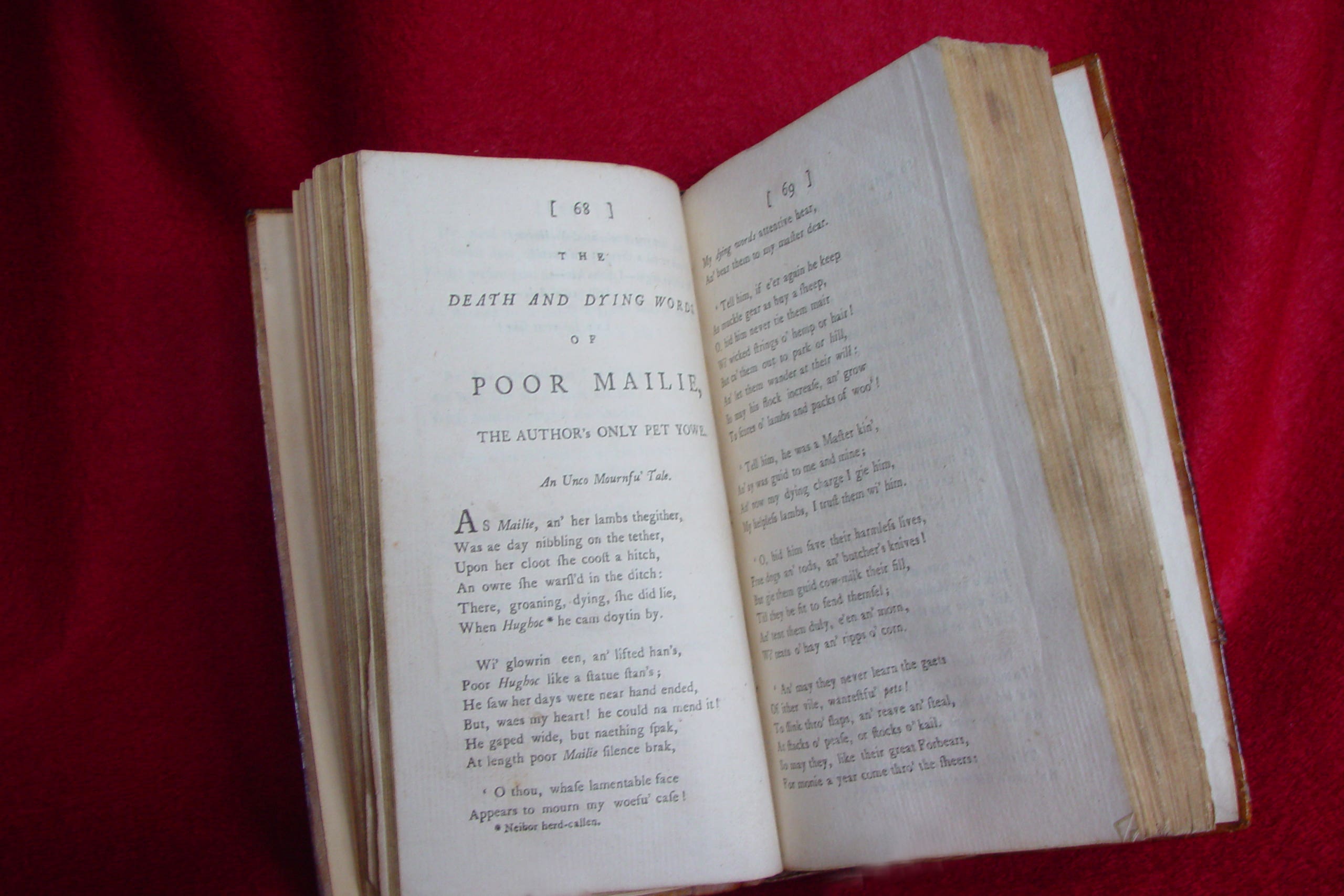Rare Robert Burns book saved from destruction to go on display
The copy of Poems Chiefly In The Scottish Dialect is missing its first 50 pages.

Your support helps us to tell the story
From reproductive rights to climate change to Big Tech, The Independent is on the ground when the story is developing. Whether it's investigating the financials of Elon Musk's pro-Trump PAC or producing our latest documentary, 'The A Word', which shines a light on the American women fighting for reproductive rights, we know how important it is to parse out the facts from the messaging.
At such a critical moment in US history, we need reporters on the ground. Your donation allows us to keep sending journalists to speak to both sides of the story.
The Independent is trusted by Americans across the entire political spectrum. And unlike many other quality news outlets, we choose not to lock Americans out of our reporting and analysis with paywalls. We believe quality journalism should be available to everyone, paid for by those who can afford it.
Your support makes all the difference.A rare first edition of a book of Robert Burns poems, saved from destruction in a late 19th century barber shop, has gone on show for the first time since before lockdown.
Burns enthusiast John Murison rescued the book after spotting it in a dilapidated state at a shop in Shrewsbury, where the proprietor was tearing out pages to clean razors.
He stepped in to buy the copy of Poems Chiefly In The Scottish Dialect.
The book, missing its first 50 pages, will be displayed at Dunfermline Carnegie Library & Galleries in Fife, next to the Abbey Church which Burns visited in 1787.
Only 612 copies of Burns’s debut collection, commonly known as the Kilmarnock Edition, were printed in 1786 and it is thought that only 84 survive worldwide.
Sara Kelly, local studies officer with OnFife, the cultural charity which runs the library, said it is a mystery how the book found its way to Shropshire.
She said: “The only noted owner is an Alexander Dick in 1790, so there’s more research to be done if we are to chart the book’s journey to Shrewsbury.
“It’s wonderful that John Murison had the presence of mind to step in and save the book, given that so few of them still exist.
“It doesn’t go on show very often because of its condition and rarity.”
The exact date when Mr Murison rescued the book is not known but it is thought to have been in the 1880s or 1890s.
The truncated edition is part of the John Murison Collection that is cared for by OnFife.
The book will be displayed with other Burns-related material collected by Glasgow-born Mr Murison, who visited Shrewsbury when he was working as a travelling seed merchant.
It will be on show in the reading room from January 3 to February 5, coinciding with Burns Night on January 25.
Mr Murison’s treasure trove of 1,700 artefacts – considered one of the world’s finest collections of Burns-related material – was bought by construction mogul Sir Alexander Gibb, who gifted it to Dunfermline Carnegie Library in 1921.
The Murison Kilmarnock Edition last went on display prior to the first lockdown in 2020, as part of the Tae A Bard exhibition at the library and galleries.
Because of its fragile condition, the book is housed in a conservation box paid for by the Dunfermline United Burns Club.
Poems Chiefly In The Scottish Dialect was printed by John Wilson of Kilmarnock and the entire print-run sold out within a month.